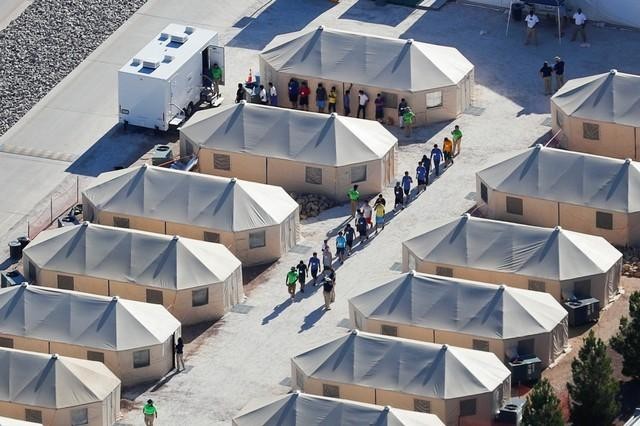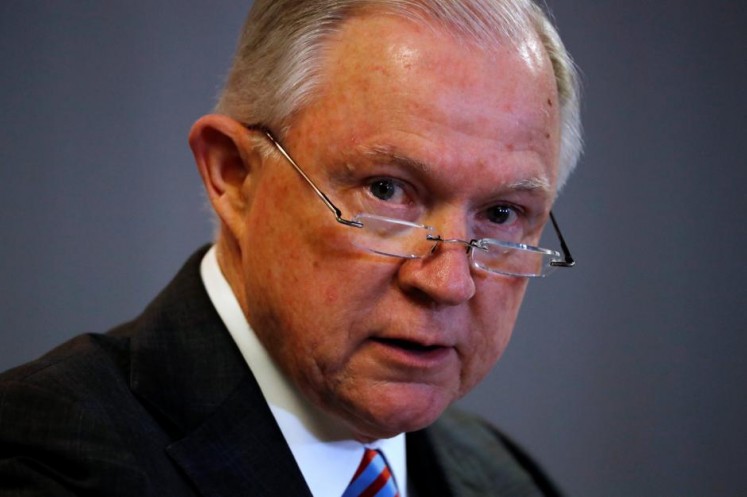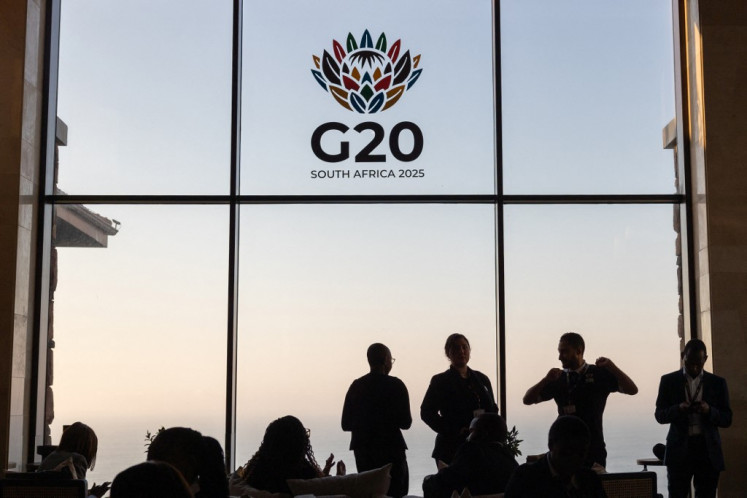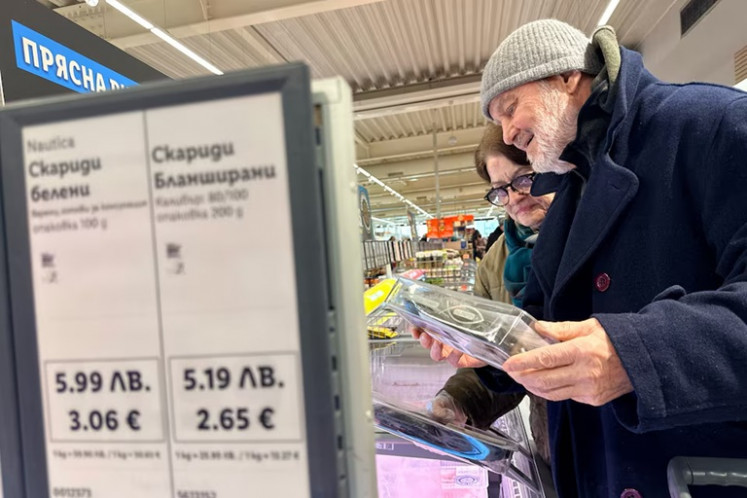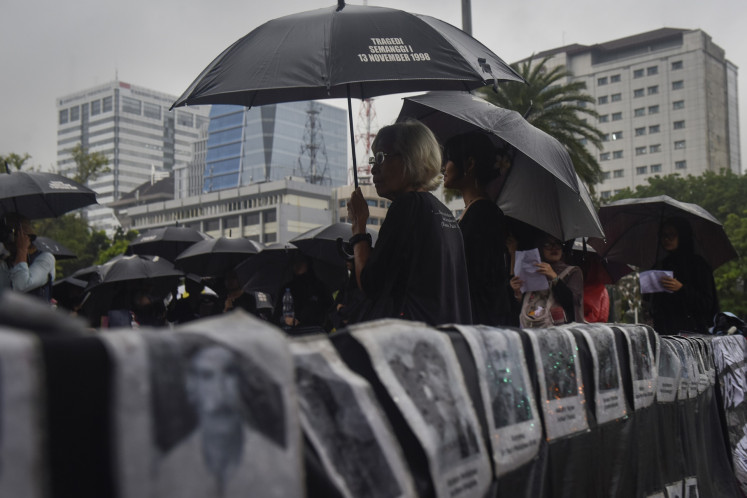Popular Reads
Top Results
Can't find what you're looking for?
View all search resultsPopular Reads
Top Results
Can't find what you're looking for?
View all search resultsOpinion: I want US officials to stop misusing the Bible
The way US officials have used the Bible to justify inhumane immigration policies is antithetical to America and its faith traditions.
Change text size
Gift Premium Articles
to Anyone
A
s the former US ambassador to the Holy See – and a migrant who once also faced the fear of being separated from my family – I have to speak out: the way US officials have used the Bible to justify inhumane immigration policies is antithetical to America and its faith traditions.
Like any religious text, the Bible can be misused as a tool of oppression instead of serving as a revelatory text of human liberation. When Attorney General Jeff Sessions told law enforcement officers that the apostle Paul had commanded in Romans 13 “to obey the laws of the government because God has ordained them for the purpose of order,” he misused the Scripture to justify the inhumane immigration policy of separating children from their families at the border.
Just because President Donald Trump signed an order ending those separations doesn’t mean the misery and maltreatment of those migrants will end. Whatever happens next, it doesn’t alter the fact that at least 2,300 undocumented children were taken from their parents in violation of internationally-agreed human rights conventions.
I was the first Latino ambassador assigned to the Vatican, but I am also a Cuban-American, the child of Cuban exiles. I entered this country legally in 1974, and upon crossing this border, learned that children like me could dream of becoming permanent residents and citizens of the United States. I could attend school and live free from the fear of deportation for myself or for any member of my family.
The vivid images and sounds of the crying children who, before Trump signed his executive order Thursday, were torn away from their parents at the border brought back these childhood memories and the trauma surrounding my departure from the island of Cuba. I still recall the fears I had as a child of eight when I heard that I might be sent alone ahead of my parents to the United States via plane, via boat, via a floating raft, or perhaps even unaccompanied as part of some covert program like Operation Peter Pan.
In the end, I traveled to the United States with my parents via Spain, but upon arriving in Miami I was still wracked with many of the same fears these children experience today since I did not speak the language. I cannot imagine navigating this experience without my parents to comfort me. Like my parents, the caregivers of the children separated at the border risked everything to cross into the United States. As I recall my own experience as an exile, and the love I have for my own children, it’s troubling for me to think about what these kids held in US detention centers must be feeling, exhausted after making a dangerous journey, and now apart from their families.
US Attorney General Jeff Sessions delivers remarks on the US system for asylum-seekers at the Executive Office for Immigration Review in Falls Church, Virginia, US, Oct. 12, 2017. (Reuters/Jonathan Ernst)When I hear leaders in Washington, including the president and his cabinet, maligning desperate families who come to the United States as criminals and even “animals,” I am reminded that my parents too were once desperate and did everything in their power to bring me to the United States. And when I hear our leaders falsely judging parents who in desperation send their kids unaccompanied to the United States, I am reminded of the 14,000 four to 16-year-olds who entered America from Cuba in “Peter Pan,” still the largest recorded influx of unaccompanied minors the United States has ever seen.
We now stand at a crucial point in US history and we need to be ready to respond as this crisis continues. In the Gospel of Mark, we read the words “Let the children come to me.” We must let the accompanied children come back to their parents and adequately care for those unaccompanied.
In his book, “The Dignity of Difference: How to Avoid a Clash of Civilizations,” Rabbi Jonathan Sacks points out that “the Hebrew Bible in one verse commands, ‘You shall love your neighbor as yourself,’ but in no fewer than 36 places commands us to ‘love the stranger.’”
Religious leaders must be ready to speak out when migrants are treated badly. Pope Francis has done so consistently, from his first trip outside of Rome – when he spoke eloquently on Lampedusa Island of the need to embrace a culture of caregiving and to remember the interfaith “Common Word” of loving our neighbors – to his recent criticism of the Trump administration’s migration policy.
We must all refuse to allow religion and religious texts to be used as dangerous tools to dehumanize our neighbors; they should always be powerful allies in service to our common humanity.
American democracy cannot survive and thrive unless we resist the temptation to demonize our fellow human beings. These undocumented neighbors are not pests. They’re vulnerable strangers who have every right to be treated with equal dignity, care, justice, and respect. They have the right to seek asylum from the horrors they face in their homelands; we have a moral duty to alleviate that suffering.
On a political level, we must lobby lawmakers to approve the appointments only of those committed to justice for displaced persons or families. For now, that includes speaking out against the confirmation of Ronald Mortensen, the administration’s controversial nominee for the post of assistant secretary of state for population, refugees and migration. (Two senators, Arizona Republican John McCain and Delaware Democrat Chris Coons have already urged the withdrawal of Mortensen’s nomination, saying they were “deeply concerned about the possibility of a virulent opponent of immigration serving as the United States’ senior diplomat for migration and refugee policies.”)
Americans must also create immigration policies that properly protect the young “Dreamers,” brought here to the United States as children, and address the millions of other undocumented people, including other unaccompanied children held in detention centers, with empathy, justice, and love.
The nation’s soul demands that we do better than simply end the separation of families. Will America rise to the challenge?
Miguel H. Díaz served as US Ambassador to the Holy See 2009-2012 and is currently the John Courtney Murray University Chair in Public Service at Loyola University Chicago. @profmigueldiaz

